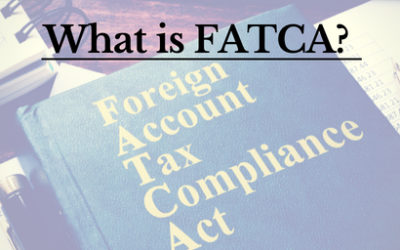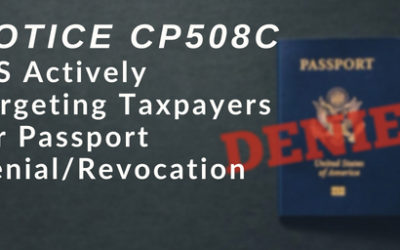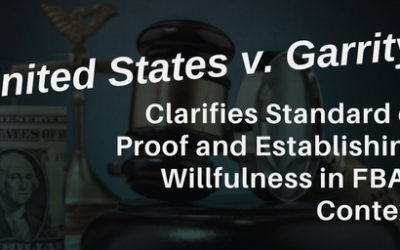The Foreign Account and Tax Compliance Act: What Is FATCA?
In an effort to reduce persistent high unemployment rates resulting from the 2008 financial crisis, President Obama signed The Hiring Incentives to Restore Employment Act of 2010 (HIRE Act)1 to incentivize employers to hire and retain workers. Tax incentives provided in the HIRE Act included: (1) a payroll tax holiday, (2) an increase in the […]
What’s Your Alien Tax Status and How Does It Affect Investment Property?
For tax purposes, a non-U.S. citizen is either a nonresident alien or a resident alien. All aliens are considered nonresident aliens, unless they pass the green card test or the substantial presence test. A person meeting either of these tests is considered a resident alien. Since aliens are taxed differently depending on their status, […]
The Difference Between Fraud and Negligence in Income Tax Cases
The Internal Revenue Service estimates that only a minuscule percentage of tax crime convictions occur each year. However, the federal agency also estimates that roughly 17 percent of taxpayers violate tax laws in some way. Numbers also tell us at more than three-quarters of income tax fraud is committed by individuals and not corporations. […]
IRS Actively Targeting Taxpayers for Passport Denial/Revocation – Notice CP508C
The IRS is now actively in the process of issuing Notices CP508C to hundreds of thousands of U.S. taxpayers—placing all notified taxpayers’ passports in serious jeopardy. Several news outlets this week report that the U.S. State Department confirms that it has already acted on its part in the process and denied passports to an undisclosed […]
A Guide to International Tax Planning
While operating in multiple jurisdictions, the company must obey all the laws including tax laws of those countries. This means if the company operates in more than one country, it must pay the appropriate taxes from these countries. For companies, the tax issue is a financial headache and can be real legal and international tax […]
United States v. Garrity: Clarifies Standard of Proof and Establishing Willfulness in FBAR Context
On April 3, 2018, in United States v. Garrity, the U.S. District Court for the District of Connecticut considered the Government’s suit to reduce to judgment a willful Report of Foreign Bank and Financial Accounts (FBAR) penalty and determined that: (1) the burden of proof is preponderance of evidence, and (2) proof of reckless conduct […]






